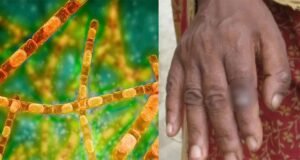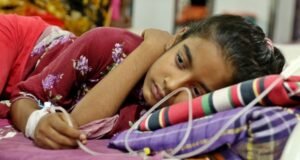
With more than 21,000 cases of dengue reported among children under the age of 15, UNICEF is intensifying its support to the efforts of the Government of Bangladesh to contain the dengue outbreak in the country.
To protect children and to respond to the public health emergency, UNICEF is delivering USD2.25 million worth of urgently needed testing kits, training of professionals, along with other critical supplies and services in the health and water, sanitation and hygiene sectors.
The dengue outbreak has now spread to 64 districts. According to the Ministry of Health and Family Welfare, more than 112,000 cases of dengue have been reported, of which 20 per cent are children below the age of 15 years.
Over 500 dengue related deaths have been reported, reads the UNICEF press release on Sunday (Aug 27).
In a year when the world has seen a rising number of climate driven disasters, climate change is also exacerbating the spread of vector-borne diseases like dengue, directly impacting the lives of children as well as adults.
“Once again, children in Bangladesh are at the frontlines of climate change as the dengue crisis here escalates,” said Mr Sheldon Yett, UNICEF Representative to Bangladesh.
“The Government of Bangladesh is undertaking a timely and effective response to the ongoing dengue situation in the country. The need of the hour is for the communities to ensure that mosquitoes do not breed in their houses and take all precautionary measures to ward away mosquitoes,’ said Prof. Abul Bashar Mohammad Khurshid Alam, Director General of the Directorate General of Health Services.
He also added that “we are providing testing kits, medical supplies, mosquito nets, and we are also working with the city corporation and relevant bodies to eliminate vector breeding sites.”
Among other measures, UNICEF is supporting the Government in engaging communities and raising awareness about dengue prevention and taking necessary preventive measures. UNICEF has mobilised religious and community leaders to influence people with actionable information to reduce the spread of dengue.
Disseminating information at mass gatherings and through social media, UNICEF has assisted the Government in reaching over 50 million people with messages about protection from dengue in the last one month.
UNICEF is also working together with partners to support the Government with critical medical supplies, including kits with 13,400 tests, building capacities of staff, providing technical advice, and implementing actions such as campaigns to clean up breeding sites in select areas.
 Weekly Bangla Mirror | Bangla Mirror, Bangladeshi news in UK, bangla mirror news
Weekly Bangla Mirror | Bangla Mirror, Bangladeshi news in UK, bangla mirror news







